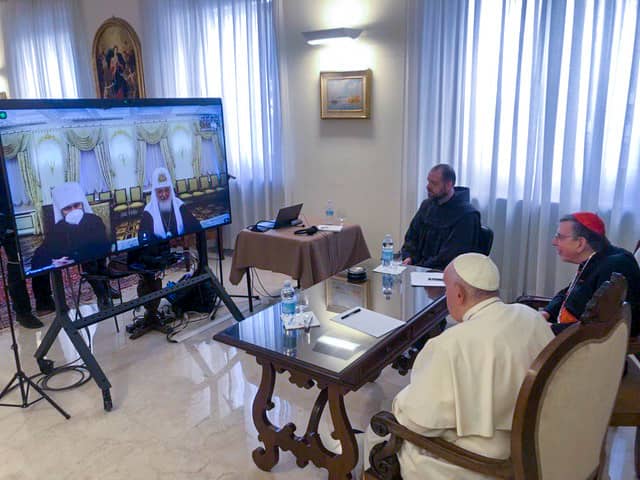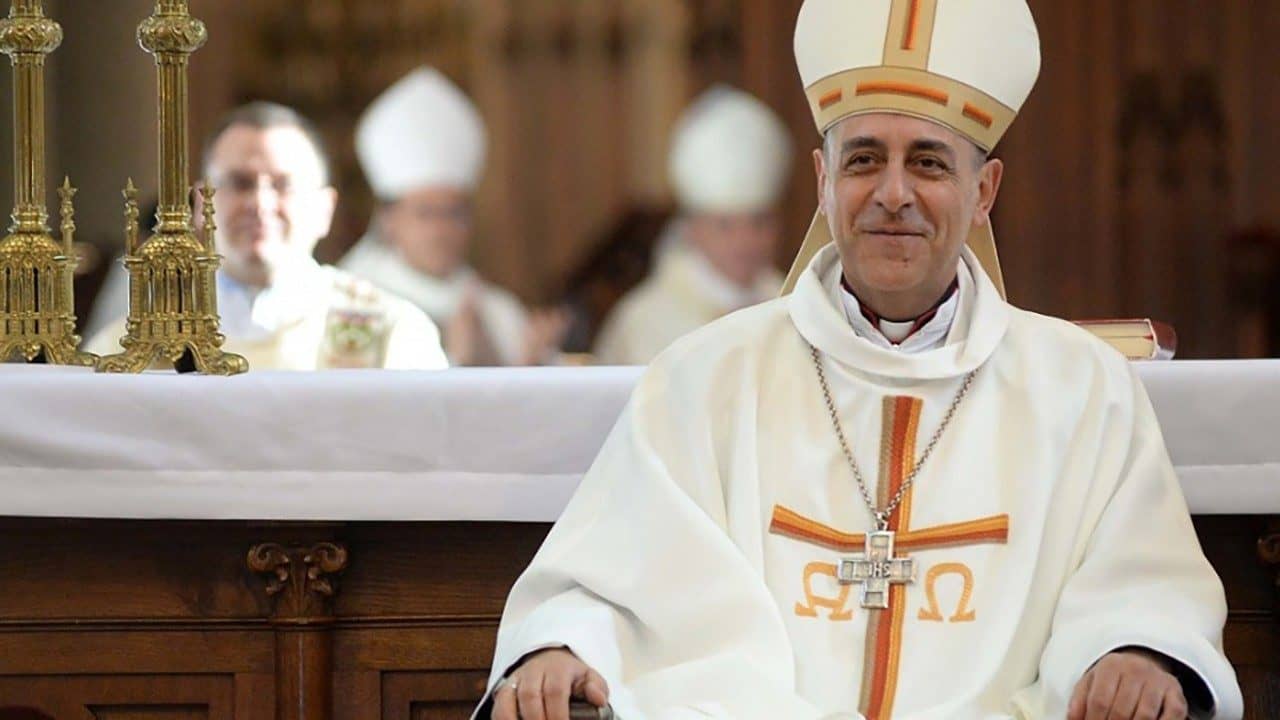ROME – I got a call Saturday to come on air from my friends at CNN, where I serve as senior Vatican analyst. The producers wanted me to join a morning news program, following a recent interview with Pope Francis in which he compared populist rhetoric about “us” and “we” to the kind of talk associated with the Nazis.
“I am worried because you hear speeches that resemble those by Hitler in 1934. ‘Us first, We… We ….’” Such thinking, the pope said, “is frightening.”
The gist of the TV question I got on Saturday was this: “Why did Pope Francis choose now to enter the debate about white supremacy and hate?”
Obviously, my answer was supposed to be that Francis has been appalled by the shootings in the U.S. in El Paso and Dayton, coupled with the fact that the El Paso gunman has been linked to white nationalism and anti-immigrant sentiment, and is concerned about the national debate the situation has unleashed about whether the populist rhetoric espoused by President Donald Trump, especially what he has to say about immigrants, may have played a role in the violence.
Alas, I ended up throwing a bit of cold water on the storyline.
First of all, in response to the question “why now?” for the pope’s interview, it’s important to remember that it came with the Italian newspaper La Stampa. Coincidentally, that happens to be the paper for which his new editorial director, veteran Italian journalist and confidante Andrea Tornielli, used to work. Tornielli was appointed in December 2018 and recently got a couple of new deputies from the pope, including former interim papal spokesman Alessandro Gisotti.
In other words, it’s at least as likely that giving the interview to La Stampa was about paying off a debt to an old friend as it was a desire to engage current events in the United States.
Moreover, if there was any political subtext to the comments, it’s much more likely to be in the pope’s own backyard. In the last few days, the populist Deputy Prime Minister Matteo Salvini, known for his hardline anti-immigrant stance, has announced that he’s exiting the current ruling coalition with the left-wing Five Star movement and wants new elections to be called. Polls suggest Salvini and his League party would do very well, perhaps ending up in a position to sustain a government more or less on their own.
RELATED: Can Pope Francis rouse the “other Italy” in looming elections?
Recently I had lunch with a colleague in the Vatican press corps here I respect tremendously, and we speculated a bit about which newspapers Francis probably sees every morning. The consensus was that they’re mostly Italian, leading us to suspect that if he had any specific political situation in the back of his mind when he made his comments on populism, it was probably Salvini rather than Trump or anyone else (say, Boris Johnson in the UK, Rodrigo Duterte in the Philippines, or Jair Bolsonaro in Brazil, all of whom would be equally good candidates.)
The theory that Francis’s horizon was mostly European is reinforced by a less-quoted portion of his La Stampa interview, in which he said that national sovereignty is a worthy value to defend, “but relations with other countries, with the European community, must also be protected and promoted.” Indeed, much of the interview was about Europe and its future.
Granted, Francis did issue a statement in response to the U.S. shootings, and Vatican media have prominently featured the statements of the U.S. bishops. Granted, too, it’s well-known that Francis is no friend to many aspects of the worldview represented by Trump. Still, there’s little reason to believe the pope himself is hanging on every latest presidential utterance.
There’s a larger point, which is this: There’s a natural tendency for people everywhere to assume that when the pope speaks, he must be talking about them. That impulse is turbo-charged for Americans, since we generally believe that everyone, everywhere, is thinking and talking about the same stuff we are, and if they’re not, it’s because they’re out of touch or part of the problem.
If you need a case in point, look no further than the clerical sexual abuse crisis. It’s absolutely inconceivable for many Americans that the sex abuse mess isn’t what the pope is thinking about when het gets up in the morning and goes to bed at night, yet the raw reality is that seen in a global perspective, it’s simply one among many priorities any pope would have to face.
In truth, popes are responsible for the affairs of a global church composed of 1.3 billion people in every nook and cranny of the planet, and much of the time their pronouncements are intentionally crafted to extend across space and time – in other words, not to refer directly to any specific personality or situation.
Moreover, there’s another reason to believe that this particular pope often isn’t talking about the U.S. even when we’re tempted to think he is, which is this: As a Latin American, Francis resents the fact the United States believes itself to be the center of the universe, he has ambivalent feelings about America politically and culturally, his English isn’t that great, and he has few close American friends and advisors.
To bottom-line things, the American left needs to accept the fact that not everything this pope says about justice, the poor, immigrants, race and populism is an indictment of Donald Trump, and the American right needs to make peace with the fact that they think about Pope Francis far more than he thinks about them.
For Americans, Pope Francis is actually an invitation to think about the rest of the world, to ponder realities beyond our own borders that might shape a pope’s thinking. It’s a stretch, sure, but in a 21st century multipolar world, that sort of exercise could probably do us some good – especially, one might add, with a Synod of Bishops on the Amazon looming in October.
Follow John Allen on Twitter: @JohnLAllenJr
Crux is dedicated to smart, wired and independent reporting on the Vatican and worldwide Catholic Church. That kind of reporting doesn’t come cheap, and we need your support. You can help Crux by giving a small amount monthly, or with a onetime gift. Please remember, Crux is a for-profit organization, so contributions are not tax-deductible.















